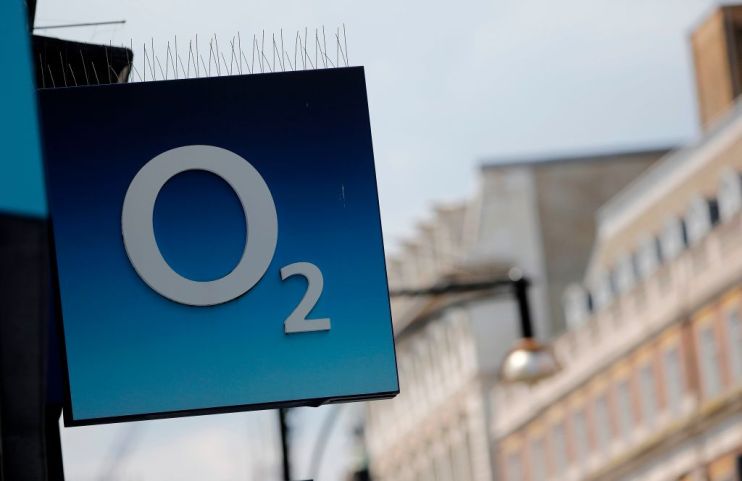O2-Virgin Media merger: The deal makes sense, but could rival bids crash the party?

It’s a busy time for the telecoms industry, which has been forced into overdrive as millions of people turn to mobile and broadband services during the coronavirus lockdown.
So it may seem like an unlikely time to embark on a mega-merger, but this is exactly what O2 and Virgin Media are looking to do.
Parent companies Telefonica and Liberty Global this morning confirmed they were in early stage discussions over a potential tie-up to create a new telecoms company straddling mobile, broadband and pay-TV.
But what is the appeal for the two telecoms giants, and how would a new rival impact the UK market?
Time to get out
While the timing may seem strange, exit moves have been in the offing for a while for both Telefonica and Liberty Global.
Telefonica has been examining options for O2 since 2016, when a planned takeover by Three owner CK Hutchison was blocked by European competition regulators.
The Spanish telecoms giant then considered a £10bn stock market listing for its British division, but abandoned the plans amid concerns about Brexit.
The UK is a major market for Telefonica, and O2 is the country’s largest mobile network operator with more than 34m customers. But a deal would enable the Spanish parent company to reduce its debt load, which stood at €37.74bn (£33.5bn) at the end of last year.
Liberty Global, led by billionaire John Malone, has also been looking to offload its European operations, selling its cable networks in Germany and central Europe to Vodafone in a $22bn (£17.6bn) deal which was finalised last year.
With margins in the mobile market razor thin, both companies have their reasons for making a swift exit.
Convergence and cost savings
A tie-up between O2 and Virgin Media also presents an attractive opportunity to offer converged services across mobile, broadband and pay-TV.
Virgin Media is a virtual mobile network operator, meaning it piggybacks on an existing network. At the moment, it pays BT/EE to use its network. From next year it is set to switch to Vodafone.
But a merger would allow Virgin to move its services to O2’s network (presumably after scrapping the Vodafone deal). This would eliminate a cost of roughly £180m a year, according to Enders Analysis.
In turn, the merged entity would be able to make use of Virgin Media’s fibre cable network for 5G, reducing its reliance on BT’s Openreach infrastructure.
The combined company would also be in line for tax efficiencies of roughly £100m a year by netting O2’s profit against Virgin’s losses.
Analysts at Enders describe the cost savings as “fairly modest” and warned that merging the brands could even lead to subscriber losses.
“Nonetheless, a deal of the style reported is probably worth pursuing even for a portion of the synergies touted given the challenging fundamentals of the sector — in a very mature market, even tangential synergies are worth pursuing,” they say.
James Craven, managing director at investment bank GCA Altium, says: “The transaction would provide a valuable solution for Telefonica, which has been considering options for O2 for some time, including an IPO and merger.
“With a combined entity earnings before interest, tax, depreciation and amortisation of £4bn on £11.4bn revenues, 6m fixed line customers on a 15.8m premises cable network and a total of 38m mobile subscribers, it would create a clear number two in UK telecoms, second only to BT.”
Regulation and the UK market
On the whole, analysts are unconcerned about regulatory intervention, with a converged merger far more likely to appease regulators than a tie-up between two mobile operators.
There’s also a precedent from 2016, when the competition watchdog waved through BT’s £12.5bn takeover of EE. In many ways, that merger provides a blueprint for Telefonica and Liberty.
The deal would reportedly take the form of a joint venture split equally between the two companies, with Liberty Global making a payment to Telefonica.
But establishing a fair valuation for the deal could prove to be a major hurdle, according to telecoms analyst Paolo Pescatore.
“Fundamentally it boils down to valuation — that could prove to be a stumbling block in this one,” he says.
“Virgin Media remains the crown jewels in Liberty Global’s portfolio, but also a problem child.”
For the rest of the market, a merger would mean a major new rival, with BT and Sky most likely to come under threat.
UBS analyst Polo Tang says there would also be an “opportunity cost” to Vodafone if it lost its network deal with Virgin.
“For BT, a stronger competitor could be seen as negative but we see the pension deficit /infrastructure competition for Openreach as bigger issues.”
The planned tie-up, then, could bring others to the negotiating table. Speculation of a Vodafone takeover of Virgin Media has been rife in recent years, bolstered by the network operator’s recent deal for Liberty Global’s European assets.
But Sky owner Comcast and Three UK owner CK Hutchison should also be thrown into the mix, Pescatore says.
“There isn’t enough room for all and there are a few viable options. You don’t want to be in a position of being left on the shelf.”